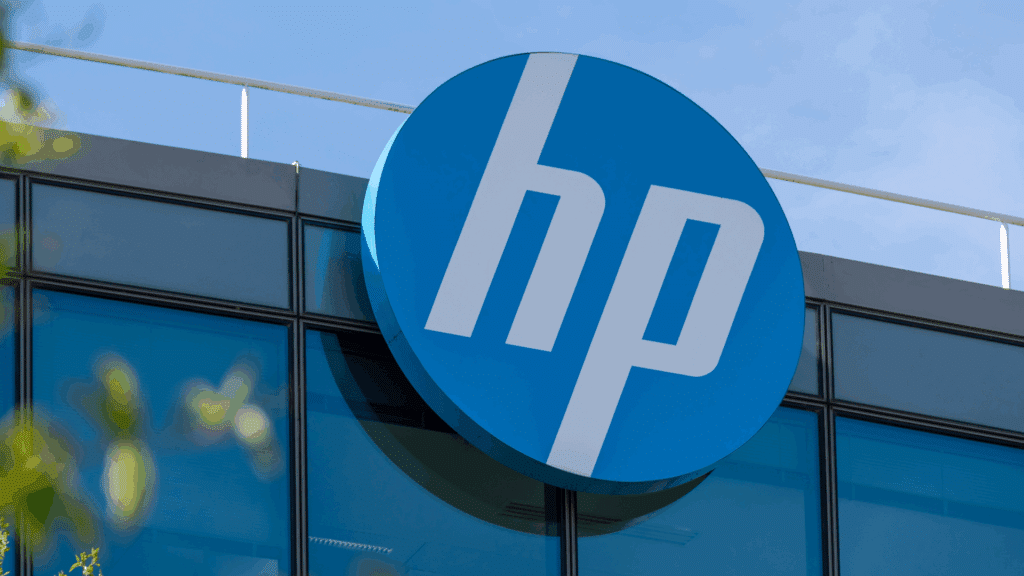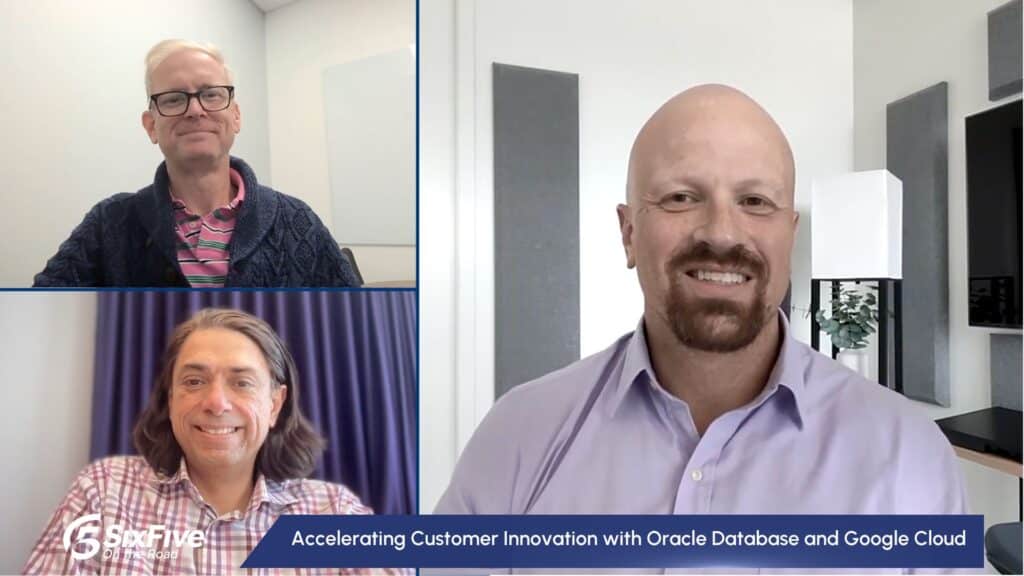The Six Five team discusses MongoDB Q4 FY2024 Earnings.
If you are interested in watching the full episode you can check it out here.
Disclaimer: The Six Five Webcast is for information and entertainment purposes only. Over the course of this webcast, we may talk about companies that are publicly traded and we may even reference that fact and their equity share price, but please do not take anything that we say as a recommendation about what you should do with your investment dollars. We are not investment advisors and we ask that you do not treat us as such.
Transcript:
Patrick Moorhead: MongoDB is-
Daniel Newman: I love talking about earnings. Thanks.
Patrick Moorhead: I know, I know you’re the best. That’s why I gave you all of them, because you’re the best at it, my bestie.
Daniel Newman: I’m the earnings guy, Dan, Dan, the earnings man. Listen, it was an absolute banger of a quarter. This is another case of strong current, not so good future. So listen to this. Revenue beat EBIT, which is something they’re still focused on because they’re really haven’t been net income positive. There’ve been adjusted EBIT positive for a long time over at Mongo. They beat it by 86% and beat the guide by 89%. So huge EBIT beat and they beat on EPS, 48 cents versus the 41 cent guide. But the guides not great. You hear that.
Patrick Moorhead: It sounds like my son.
Daniel Newman: Yeah. Well, millennial.
Patrick Moorhead: You hear my son, man.
Daniel Newman: Millennial.
Patrick Moorhead: I love you both.
Daniel Newman: Well, Pico and I are a certain age. Aren’t Pico and I are closer in age than you and me?
Patrick Moorhead: Yes.
Daniel Newman: Okay. I don’t think that’s actually true. But anyway. But I-
Patrick Moorhead: That’s fun to say.
Daniel Newman: On a revenue basis, they guided missed by about 6% and they missed on an EBIT basis big. They missed on an EBIT basis by 34%. So a really, really big miss on EBIT, which never ever makes on the annual guide, never makes anyone super-duper happy. This is not indicative that the company’s doing anything particularly wrong. Again, there seems to be a bit of conservativeness coming from CEOs about what lies ahead. But there were some other good numbers in here, Pat, that are probably worth pointing out. You’ve got revenue growth at 27%. You’ve got full fiscal revenue up at 31%. You had 47,800 customers as at the end of January. So they huge customer base. And 34% on the Atlas Cloud, which has been a big focus, is how much other business is moving to the Cloud business. And now it’s 68% of their revenue in Q4. So these are areas of strength.
The company is generating cash. It still lost on a net basis for the year, which a lot of people, it’s so confusing. Adjusted numbers can be so hard to wade through. But overall, Pat, I think the company’s in good shape. It sets up well. Operational database is very important in the era of AI vector. It’s doing a lot of the right things and it’s made the pivot to this recurring Cloud-based offering. And so I’m optimistic about it. But what we saw here, Pat, across the board is a conservativeness in the guide, which I don’t know why no one’s talking about this, but this economy is complicated. It is complicated and it is not as robust as some people think. The jobs reports are all BS, huge adjustments every quarter. We are hearing about interest rate cuts. It doesn’t look like we’re going to get them. And I’m not trying to over-macro, but the overall macro is what drives these guides. These guides are conservative, because these CEOs are not feeling as optimistic about the long-term unless you’re selling GPUs. There’s a lot of complexity in every other part of the business ecosystem.
Patrick Moorhead: Yeah. I like to look at times like this when a stock gets hammered as, do they have the right roadmap and are they working to deliver optimal value? And I think the answer is yes. First of all, if you’re looking for a database to do your new generative AI stuff, or by the way, your non-generative AI stuff in an operational database, does it scale to multi-Cloud? And the answer is yes. Is there the ability to have a generative AI platform, vectorizing, vector database and vector search? Checkbox on that. One thing I do know across Enterprise, Daniel, is what’s styming a lot of them is how do I manage my data? And I do think that this opens up the bidding process which says, Hey, should I export my data or send it to the Cloud and use an end-to-end bedrock or a Google Cloud platform like Vertex to do end-to-end AI management, which includes a data platform?
I am hearing an incredible amount of conversation about Mongo in these. Oh, my gosh. Even my son who’s still in college, he’s talking about Mongo. They’re teaching him how to do this. And a employer that he did work for the summer, a very large Fortune 500 tech company uses Mongo, because it was more secure than Honeycomb and also the vector capabilities were better. So there’s also digestion, which is, you buy all this stuff and it takes time for these customers to go out and do something with it. What I’ll be interested to dig underneath is, do they have enough CX people in the field that are helping their customers? Because the sales motion of MongoDB is like department by department, and they measure a lot of this by workloads, how many workloads do I have? And those aren’t just all sitting in IT. A lot of those are sitting in different departments.
And do they have the capability to sell into as many of those as they need? And then once the sale is made, do they have the CX and the onboarding team to make sure that they get in and start generating revenue? Good conversation. Data is where it’s at. For generative AI, I would find it hard to believe that this company doesn’t have a shiny future, even though their stock got pounded.
Author Information
Daniel is the CEO of The Futurum Group. Living his life at the intersection of people and technology, Daniel works with the world’s largest technology brands exploring Digital Transformation and how it is influencing the enterprise.
From the leading edge of AI to global technology policy, Daniel makes the connections between business, people and tech that are required for companies to benefit most from their technology investments. Daniel is a top 5 globally ranked industry analyst and his ideas are regularly cited or shared in television appearances by CNBC, Bloomberg, Wall Street Journal and hundreds of other sites around the world.
A 7x Best-Selling Author including his most recent book “Human/Machine.” Daniel is also a Forbes and MarketWatch (Dow Jones) contributor.
An MBA and Former Graduate Adjunct Faculty, Daniel is an Austin Texas transplant after 40 years in Chicago. His speaking takes him around the world each year as he shares his vision of the role technology will play in our future.







